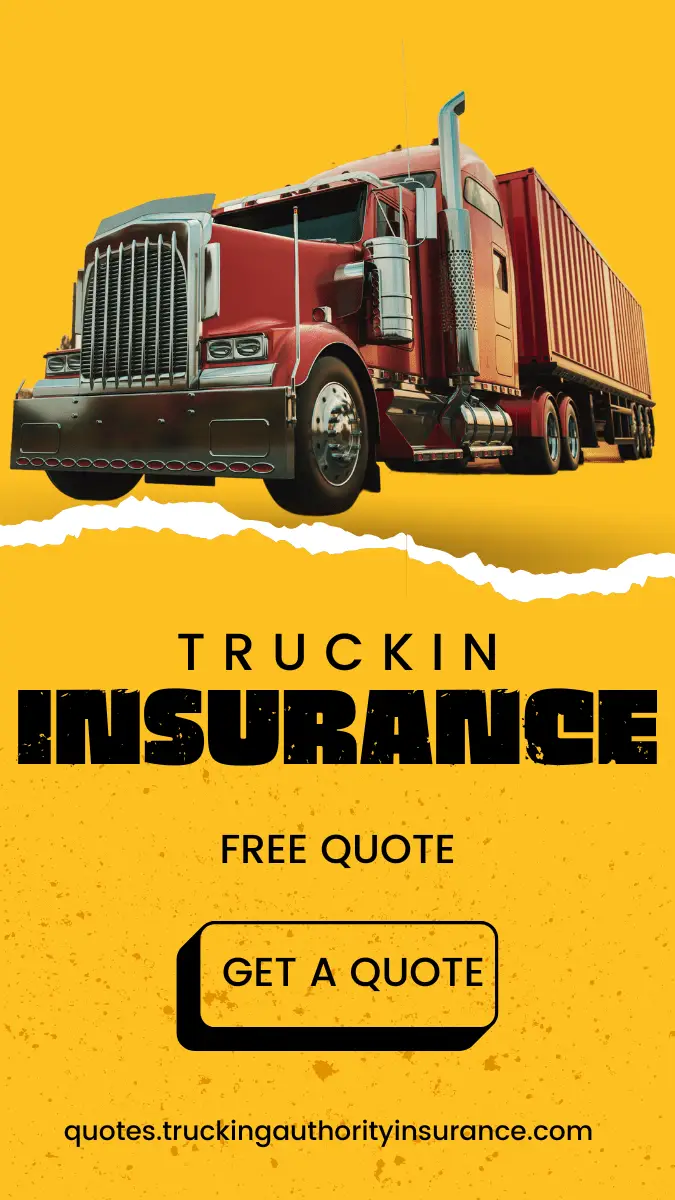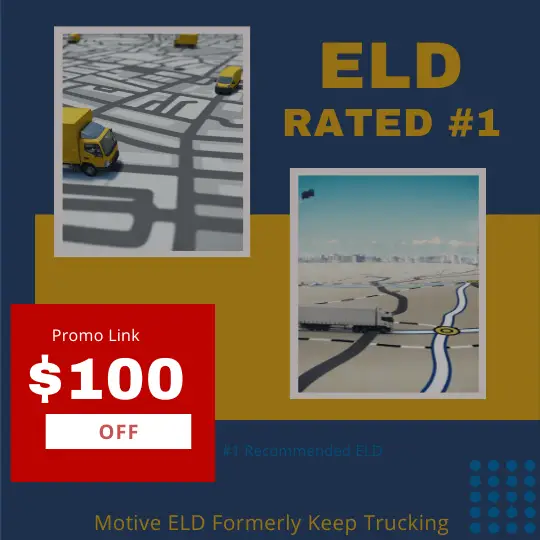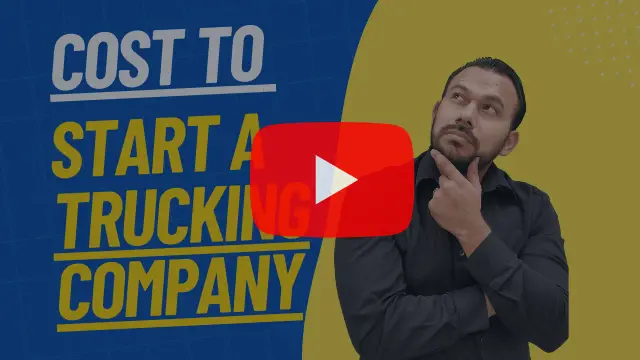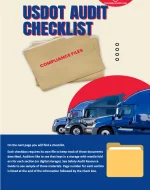Planning to launch or grow your trucking operations in the Evergreen State? Washington’s strategic location, bustling ports, and extensive highway network make it a prime location for the transportation industry. However, navigating the complex web of federal and state regulations is essential before your trucks hit the road. Understanding the requirements for obtaining your USDOT and MC number in Washington is a critical first step, whether you intend to haul freight across state lines via I-5 or operate exclusively within Washington’s diverse regions, from the Puget Sound to the Palouse. These federal identifiers are fundamental for legal compliance, safety monitoring, and building a reputable trucking business.
We will clearly explain the difference between USDOT and MC numbers, provide a step-by-step walkthrough for securing your federal operating authority, detail Washington-specific intrastate rules managed by the Department of Licensing (DOL), and outline the crucial ongoing compliance tasks you’ll face. Furthermore, we’ll cover essential state-level registrations like the International Registration Plan (IRP) and the International Fuel Tax Agreement (IFTA), including where to manage these in Washington. Finally, we’ll illustrate how partnering with experts can simplify these regulatory hurdles, allowing you to concentrate on driving your Washington trucking venture toward success.
Understanding the Essentials: USDOT vs. MC Number in Washington
Before embarking on the application journey, it’s vital to grasp the distinct functions of the USDOT number and the MC number, particularly as they apply to trucking operations within or originating from Washington State. While frequently mentioned together, they address different aspects of federal and state transportation regulations.
What is a USDOT Number?
Consider the USDOT number as your company’s unique fingerprint within the Federal Motor Carrier Safety Administration (FMCSA) database. Its core purpose is safety oversight. The FMCSA utilizes this number to track a carrier’s safety performance, compliance history, audit outcomes, and involvement in accidents. In Washington, obtaining a USDOT number is mandatory for nearly all commercial carriers involved in interstate commerce (crossing state lines). Crucially, Washington also requires a USDOT number for specific types of intrastate commerce (operations solely within state borders). According to the Washington State Department of Licensing (DOL), you must obtain and display a USDOT number if you operate any of the following commercial vehicles within Washington State:
- Commercial motor vehicles (CMVs) with a Gross Vehicle Weight Rating (GVWR) of 16,001 pounds or more.
- Combinations of CMVs, including a towed unit with a GVWR of 10,000 pounds or more, that have a total combined GVWR of 16,001 pounds or more.
- CMVs of any size used to transport hazardous materials requiring placarding.
- CMVs designed to transport 16 or more passengers, including the driver.
- Private school buses, regardless of weight or size.
This Washington-specific threshold (16,001 lbs for many intrastate carriers) is higher than the federal baseline (10,001 lbs) often applied in other states for intrastate USDOT requirements, making it essential to check Washington’s specific rules. You can find more details on the official Washington DOL Intrastate Commercial Vehicles page and general information from the FMCSA .
What is an MC Number (Operating Authority)?
An MC number signifies Operating Authority, which is the FMCSA’s permission for your company to transport regulated commodities for-hire in interstate commerce. While the USDOT number identifies your business for safety tracking, the MC number defines the type of for-hire operation you are authorized to conduct across state lines and the cargo you are permitted to haul. Common authority types include Motor Carrier of Property (except Household Goods), Motor Carrier of Household Goods (Moving Companies), and Broker of Property. If your Washington-based business plans to operate as a for-hire carrier, transporting goods owned by others across state lines (e.g., Seattle to Portland), you will almost certainly need an MC number in addition to your USDOT number.
Washington-Specific Nuances
It is crucial to recognize that while the FMCSA governs federal USDOT and MC number requirements, the Washington State Department of Licensing (DOL) manages state-specific vehicle registration, IRP, IFTA, and enforces the specific criteria for when intrastate carriers need a USDOT number. Unlike some states that have a separate state-level operating authority permit, Washington’s primary requirement for intrastate authority appears closely tied to meeting the thresholds for needing a federal USDOT number, as outlined on their Intrastate Commercial Vehicles page . Always refer to the official WA DOL resources for the most current state-specific details.
Step-by-Step Guide: Obtaining Your Federal Authority (USDOT & MC)
Securing your federal operating authority, which includes your USDOT number and potentially an MC number, is primarily handled through the Federal Motor Carrier Safety Administration (FMCSA). This process requires careful attention to detail to ensure compliance and avoid unnecessary delays, especially for carriers based in or operating through Washington.
Step 1: Determine Your Operation Type
Before initiating any applications, precisely define the scope of your trucking operations:
- Interstate Commerce: This involves transporting cargo or passengers across state lines (e.g., from Washington to Oregon or Idaho) or handling freight that originates or terminates outside Washington, even if your specific leg of the journey remains within the state. Carriers engaged in interstate commerce typically require both a USDOT number and, if operating for-hire, an MC number.
- Intrastate Commerce: This restricts your operations exclusively within Washington’s borders, transporting goods that both originate and terminate within the state. As detailed previously, Washington requires intrastate carriers meeting specific criteria (vehicle weight, passenger capacity, HazMat) to obtain a USDOT number. However, purely intrastate carriers generally do not need an MC number, but must comply with all WA DOL registration and potential permit requirements. Correctly identifying your operational scope is fundamental as it dictates the necessary federal and state registrations.
Step 2: Prepare Your Information
Gathering essential business details beforehand will significantly streamline the FMCSA application process. Key information includes:
- Business Structure: Identify your legal business structure (Sole Proprietorship, Partnership, Limited Liability Company (LLC), or Corporation). If you are establishing a new trucking business in Washington, forming an LLC is often a recommended structure for liability protection. Resources like Truckers Authority’s LLC for Trucking Company Guide and formation services can assist with this crucial step.
- Employer Identification Number (EIN): This federal tax ID, obtained from the IRS, is necessary for most business structures. While sole proprietors without employees might use their Social Security Number, obtaining an EIN is generally advisable for business operations.
- Company Details: Full legal business name, physical address (principal place of business), mailing address, and contact information for company officials.
- Operational Details: Specify the types of cargo you intend to transport (e.g., general freight, household goods, hazardous materials), the number and types of vehicles in your fleet, and whether you will operate as a for-hire carrier, private carrier, or broker.
Step 3: Apply via FMCSA Unified Registration System (URS)
The FMCSA’s online Unified Registration System (URS) is the mandatory portal for new applicants seeking a USDOT number and/or Operating Authority (MC number).
- Application Process: Navigate the URS portal and meticulously complete the application. You will input the business and operational details gathered in Step 2. The system integrates various registration requirements, replacing older forms like the MCS-150 for initial registration.
- Fees: Be prepared for application fees, primarily associated with obtaining Operating Authority. As of early 2025, the standard fee is typically around $300 per type of authority sought (e.g., Motor Carrier of Property). Check the FMCSA website for current fee schedules. Obtaining only a USDOT number (if you don’t need an MC number, like some intrastate carriers) might not have a separate fee when done through URS, but verify this during the application.
- Processing Time: After submitting your application and payment, anticipate a processing period. A USDOT number might be issued relatively quickly (sometimes immediately or within a few days). However, obtaining an MC number involves a mandatory vetting period, including public posting, and typically takes several weeks (often 20-25 business days or potentially longer) before the authority becomes active.
Need Help Obtaining Your Permits?
Get Your Trucking Authority Today!
We Can Help Setup Your USDOT & MC Number.
Speak With Our Experienced Permit Professionals That Can Help You Every Step Of The Way.
Call Us Today! Live Agents Are Standing By.
When Do Washington Intrastate Rules Apply?
Intrastate commerce in Washington involves operating a commercial motor vehicle where the trip originates and terminates entirely within the state. This is distinct from interstate commerce, which involves crossing state lines or handling goods moving across state lines.
USDOT Number Requirement for Intrastate Carriers in Washington
A key aspect of Washington’s regulation is its specific threshold for requiring intrastate carriers to obtain a federal USDOT number. Unlike the federal baseline of 10,001 lbs often used elsewhere, Washington mandates a USDOT number for intrastate operations if your vehicle meets any of the following criteria, as outlined on the WA DOL Intrastate Commercial Vehicles page :
- Weight Threshold: The commercial motor vehicle (CMV) has a Gross Vehicle Weight Rating (GVWR) of 16,001 pounds or more.
- Combination Weight Threshold: The vehicle is part of a combination (e.g., truck and trailer) where the towed unit has a GVWR of 10,000 pounds or more, and the total combined GVWR is 16,001 pounds or more.
- Hazardous Materials: The CMV, regardless of size, is used to transport hazardous materials that require placarding under federal regulations.
- Passenger Transport: The CMV is designed to transport 16 or more passengers, including the driver.
- Private School Buses: Any private school bus, irrespective of its weight or size.
If your intrastate operation in Washington involves vehicles meeting any of these conditions, you must apply for and display a USDOT number, even if you never cross state lines. You can apply for this USDOT number through the same FMCSA Unified Registration System (URS) used by interstate carriers.
Washington State Operating Authority Permits
Based on current information from the WA DOL and WSDOT websites reviewed, Washington does not appear to have a separate, distinct state-level operating authority permit for general freight intrastate carriers similar to what exists in some other states (like California’s CA number or Texas’s TxDMV number). The primary regulatory requirement for intrastate authority seems tied to obtaining the USDOT number if you meet the criteria above, along with proper vehicle registration and adherence to safety regulations. However, specific industries or oversized/overweight loads might require additional permits from WSDOT (Commercial Vehicle Permits ). Always verify requirements based on your specific operation type.
Other Washington State Requirements for Intrastate Carriers
Beyond the USDOT number, intrastate carriers must ensure:
- Vehicle Registration: All commercial vehicles must be properly registered with the Washington DOL. This involves obtaining Washington commercial license plates (base plates).
- Insurance: While federal MC number insurance minimums don’t apply to purely intrastate carriers, Washington state law requires minimum liability insurance coverage for all registered vehicles. Commercial vehicles likely have higher state-mandated minimums than passenger cars, and sufficient coverage is essential for business protection. Consult with an insurance provider knowledgeable about Washington commercial vehicle requirements.
- Safety Compliance: Intrastate carriers are still subject to safety regulations, potentially including driver qualification files, hours of service (if applicable under state rules, which often mirror federal rules), and vehicle maintenance standards, enforced by the Washington State Patrol (WSP).
Navigating these state-specific requirements is crucial for compliant intrastate operations in Washington. Referencing the official WA DOL resources is always the best practice.
Essential Post-Authority Compliance in Washington
Obtaining your USDOT and MC numbers is just the beginning. Maintaining compliance with federal and state regulations is an ongoing responsibility crucial for keeping your authority active and ensuring safe operations on Washington roads and beyond. Several key compliance areas demand continuous attention:
New Entrant Safety Audit
All new carriers granted federal operating authority (both interstate and applicable intrastate carriers with USDOT numbers) are automatically enrolled in the FMCSA’s New Entrant Safety Assurance Program. This program monitors your safety performance during the initial 18 months of operation.
- Purpose: To verify that you have basic safety management controls in place and understand applicable regulations.
- Timeline: The audit typically occurs within the first 12 months (often sooner) after your USDOT number becomes active.
- Process: An auditor will review your records related to driver qualifications, drug and alcohol testing, hours of service, vehicle maintenance, insurance, and accident reporting. In Washington, these audits are often conducted by the Washington State Patrol (WSP) Commercial Vehicle Division on behalf of the FMCSA. You will likely be contacted to schedule the audit at your principal place of business. The WSP provides resources like a guide on what to expect during a safety audit .
- Outcome: Passing the audit is mandatory to receive permanent operating authority. Failure can lead to revocation of your USDOT number.
- Assistance: Preparing for this audit can be stressful. Services like those offered by Truckers Authority can help you organize your records and understand the requirements to ensure a smooth audit process. More information is available directly from the FMCSA New Entrant Program .
- Drug and Alcohol Testing Program
FMCSA regulations mandate a comprehensive drug and alcohol testing program for all drivers operating commercial motor vehicles that require a Commercial Driver’s License (CDL).
- Requirements: This includes pre-employment testing, random testing, post-accident testing, reasonable suspicion testing, and return-to-duty testing.
- Consortium: Owner-operators and small carriers must enroll in a DOT-approved random testing consortium to ensure compliance with random testing rates.
- Clearinghouse: Employers must query the FMCSA Drug & Alcohol Clearinghouse for new hires and annually for existing drivers, as well as report any violations.
- Services: Truckers Authority offers enrollment in compliant drug and alcohol testing consortiums to simplify this requirement for carriers.
- Unified Carrier Registration (UCR)
If you operate commercial vehicles in interstate commerce (crossing state lines), you must register and pay annual fees through the Unified Carrier Registration (UCR) system. This applies to motor carriers, brokers, freight forwarders, and leasing companies.
- Requirement: Fees are based on the number of commercial motor vehicles operated in interstate commerce.
- Registration: Registration is done annually through the official UCR portal .
- Assistance: Truckers Authority provides UCR filing services to ensure timely and accurate registration each year.
- Biennial Updates (MCS-150)
All entities with a USDOT number (both interstate and intrastate) must update their registration information with the FMCSA every two years via the MCS-150 form. This update is required even if none of your information has changed.
- Deadline: The update schedule is based on the last two digits of your USDOT number.
- Process: Updates are typically filed online through the FMCSA registration portal .
- Importance: Failure to complete the biennial update can lead to deactivation of your USDOT number and potential fines.
Staying on top of these post-authority compliance tasks is non-negotiable for maintaining legal operation in Washington and nationwide. Proactive management and seeking expert assistance when needed can prevent costly violations and interruptions to your business.
Washington-Specific Registrations: IRP, IFTA, and Vehicle Plates
Beyond federal authority and basic compliance, operating commercial vehicles in or through Washington involves specific state-level registrations managed by the Washington State Department of Licensing (DOL), particularly concerning vehicle plates and fuel taxes for interstate operations.
- International Registration Plan (IRP) – Apportioned Plates
If your commercial vehicles operate in Washington and at least one other IRP member jurisdiction (most US states and Canadian provinces), you likely need to register under the IRP. This allows you to operate across member jurisdictions with a single set of apportioned license plates issued by your base state (Washington, in this case) and a cab card listing all authorized jurisdictions.
- Purpose: Simplifies registration for interstate carriers by consolidating payments and credentials through the base jurisdiction.
- Who Needs It in Washington: Generally required for vehicles used in two or more member jurisdictions that are over 26,000 lbs GVW, have three or more axles regardless of weight, or are used in a combination exceeding 26,000 lbs GVW.
- How to Apply in Washington: Applications are processed by the WA DOL Prorate and Fuel Tax Services. Washington offers an online system, License Express for prorate and fuel tax , which allows carriers to set up accounts, manage fleets, submit documents, and make payments. You can also apply by mail or in person at specific DOL offices. Required documents typically include the IRP application, proof of residency/business address, Federal Heavy Vehicle Use Tax (Form 2290) proof, vehicle titles/registrations, and your USDOT number. Find detailed instructions on the WA DOL Register for IRP page .
- Assistance: Managing IRP registration and renewals can be complex. Truckers Authority offers expert IRP filing services to handle this process for you.
- International Fuel Tax Agreement (IFTA)
Similar to IRP for registration, IFTA simplifies the reporting and payment of fuel use taxes for carriers operating in multiple member jurisdictions. If you operate qualified motor vehicles in Washington and at least one other IFTA jurisdiction, you must obtain an IFTA license and decals.
- Purpose: Allows carriers to file a single quarterly fuel tax return in their base jurisdiction (Washington) to report fuel purchased and miles traveled in all member jurisdictions. Taxes are then distributed accordingly.
- Who Needs It in Washington: Required for qualified motor vehicles operating in two or more IFTA jurisdictions. Qualified vehicles are generally the same as those requiring IRP registration (over 26,000 lbs GVW, three or more axles, or combinations over 26,000 lbs GVW).
- How to Apply & Report in Washington: Apply for your IFTA license and annual decals through the WA DOL Prorate and Fuel Tax Services, using the License Express for prorate and fuel tax online system, by mail, or in person. Once licensed, you must file quarterly tax returns reporting all miles traveled and fuel purchased in each member jurisdiction. Detailed information is on the WA DOL Get your license and decals: IFTA page .
- Assistance: Quarterly IFTA reporting requires meticulous record-keeping. Truckers Authority provides IFTA filing services to help ensure accurate and timely reporting, avoiding penalties.
- Washington Commercial Vehicle Registration (Base Plates)
For commercial vehicles based in Washington that operate only intrastate (or if Washington is your designated base state for IRP), you must obtain standard Washington commercial license plates (base plates) through the WA DOL. This process involves standard vehicle registration procedures, proof of ownership, and payment of applicable state registration fees and taxes. Information can be found integrated within the WA DOL Register Commercial Vehicles section .
- Washington IRP & Fuel Tax Office Locations
While the online License Express system is encouraged, Washington DOL provides specific offices for in-person IRP and IFTA services. Based on the user-provided links and DOL information:
- Dedicated Prorate & Fuel Tax Offices: The primary locations offering walk-in and appointment services for IRP and IFTA are:
- Olympia: 405 Black Lake Boulevard SW, Building 2, Olympia, WA 98502
- Vancouver: 1301 NE 136th Avenue, Vancouver, WA 98684
- These offices accept walk-ins as time permits, but appointments are recommended. Details are on the Prorate and fuel tax offices page .
- Other Potential Locations (Verify Services):
- Seattle Area (King County): The King County link (Local licensing office locations ) lists various subagent offices for general vehicle licensing. While convenient for standard registration, these subagents may not handle specialized IRP or IFTA transactions. It’s best to confirm directly with a specific subagent or use the dedicated DOL offices in Olympia or Vancouver for IRP/IFTA.
- Spokane Area: The link provided points to Quick Title offices . These offices specialize in expedited title processing and standard vehicle registration/licensing. They are unlikely to handle complex IRP or IFTA registrations. Carriers in the Spokane area needing IRP/IFTA services would likely need to utilize the online system, mail, or travel to a dedicated office like Olympia.
Always verify the specific services offered at any location before visiting, especially for specialized transactions like IRP and IFTA.
Why Partner with Truckers Authority for Your Washington Operations?
Navigating the layers of federal regulations set by the FMCSA and the specific requirements mandated by the Washington State Department of Licensing (DOL) and Washington State Patrol (WSP) can be a complex and time-consuming endeavor. From determining the correct authority types (USDOT, MC) to managing state-specific registrations like IRP and IFTA, ensuring compliance with the New Entrant Safety Audit, and keeping up with ongoing filings like UCR and biennial updates – the administrative burden can distract you from the core task of running your trucking business.
This is where Truckers Authority comes in. We specialize in helping trucking companies across the nation, including those operating in Washington, cut through the red tape and get on the road faster and more efficiently. Partnering with us offers significant advantages:
Expertise:
Our team possesses in-depth knowledge of both federal and Washington state trucking regulations. We stay updated on the latest requirements, ensuring your applications and filings are accurate from the start.
Time Savings:
We handle the paperwork and submission processes, freeing up your valuable time to focus on securing loads, managing drivers, and growing your business.
Comprehensive Services:
From initial USDOT and MC number applications, BOC-3 filings, and LLC formation to ongoing compliance support like IRP registration, IFTA fuel tax reporting, UCR filings, and drug/alcohol consortium enrollment, we offer a full suite of services tailored to your needs.
Peace of Mind:
Avoid costly mistakes, delays, or penalties associated with incorrect filings. We ensure your business remains compliant, allowing you to operate with confidence.
Don’t let regulatory hurdles slow down your Washington trucking ambitions. Let the experts at Truckers Authority streamline your path to compliance.
Ready to get started? Explore our Service Pricing , Contact Us online, or call us directly at [Your Phone Number] to discuss how we can assist your Washington trucking venture.
VIII. Frequently Asked Questions (FAQs) – Washington USDOT & MC Numbers
Here are answers to common questions about obtaining USDOT and MC numbers for trucking operations in Washington State:
Frequently Asked Questions
Q1: Do I absolutely need a USDOT number if I only drive my truck within Washington State (intrastate)?
A: It depends on your vehicle and operation. Washington requires intrastate carriers to obtain a USDOT number if their vehicle has a GVWR of 16,001 lbs or more, is a combination with a GCWR of 16,001 lbs or more (with the towed unit over 10,000 lbs), transports placarded HazMat, carries 16+ passengers, or is a private school bus. If your operation doesn’t meet these criteria, you might not need a USDOT number for purely intrastate work, but always verify with the WA DOL .
Q2: Is there a specific “Washington Operating Authority” permit I need for intrastate hauling, separate from the USDOT number?
A: Unlike some states, Washington doesn’t appear to issue a distinct state operating authority permit for general freight intrastate carriers. The primary requirement for intrastate authority seems linked to obtaining a USDOT number if you meet the state’s criteria, along with proper vehicle registration and insurance. Specific loads (like oversized) may require permits from WSDOT.
Q3: I operate interstate. Do I need both a USDOT and an MC number?
A: If you operate in interstate commerce (crossing state lines), you definitely need a USDOT number. If you are operating for-hire (transporting goods for others for compensation), you will also need an MC number (Operating Authority) from the FMCSA. Private carriers (transporting their own goods) typically only need a USDOT number for interstate operations.
Q4: Where can I handle my IRP (apportioned plates) registration in person in Washington?
A: The primary Washington DOL offices equipped for full IRP services are located in Olympia and Vancouver. While they accept walk-ins, appointments are recommended. General licensing subagents (like those in King County) or Quick Title offices (like in Spokane) typically do not handle IRP registrations. Using the License Express online system is often the most efficient method.
Q5: Can Truckers Authority help me with my quarterly IFTA fuel tax filings for Washington?
A: Yes, absolutely. Truckers Authority offers comprehensive IFTA fuel tax reporting services. We can help you track your mileage and fuel purchases, prepare your quarterly returns accurately, and file them with the Washington DOL on time, helping you avoid penalties and stay compliant.
Q6: How long does it take to get an active MC number after applying?
A: While the USDOT number might be issued quickly, activating an MC number takes longer. After application submission, insurance filing, and BOC-3 filing, there is a mandatory FMCSA vetting and public notice period. Typically, it takes several weeks (often 20-25 business days or more) for the MC number to become fully active.
